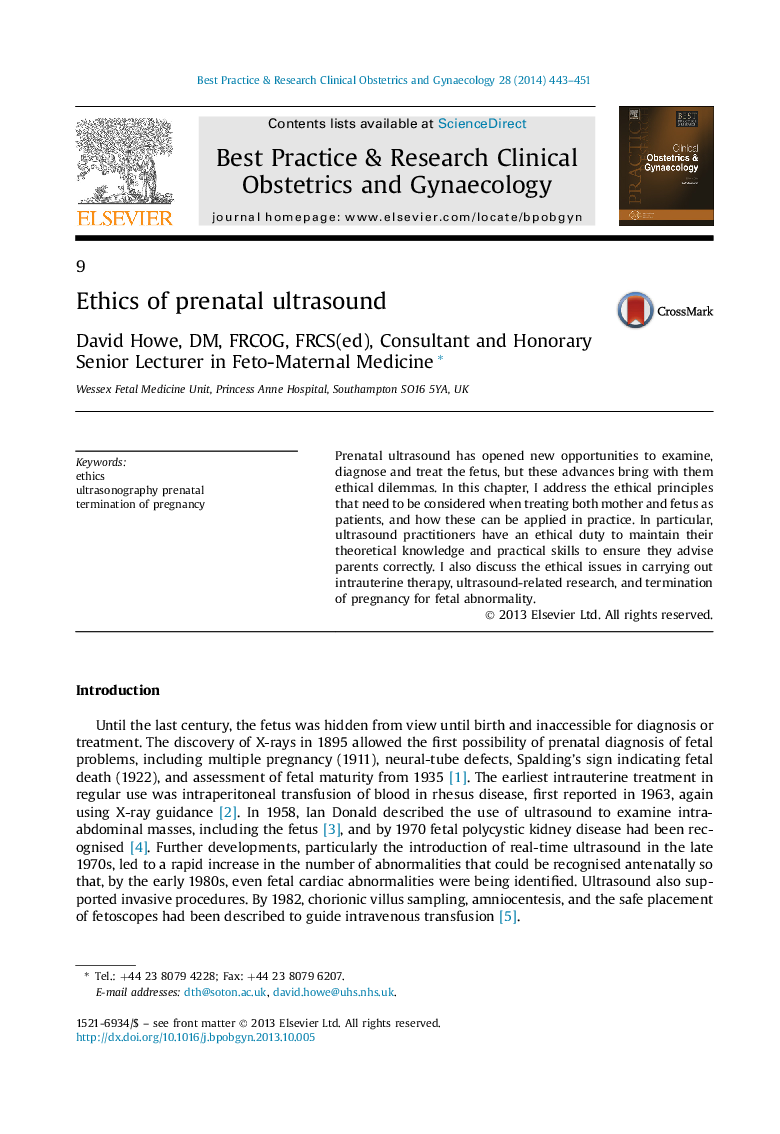| Article ID | Journal | Published Year | Pages | File Type |
|---|---|---|---|---|
| 3907285 | Best Practice & Research Clinical Obstetrics & Gynaecology | 2014 | 9 Pages |
•To advise parents ethically, clinicians must constantly update their theoretical knowledge in a rapidly changing speciality.•Prenatal ultrasound often involves a duty of care to two patients, the mother and the fetus whose interests may conflict.•When the fetus is thought to have moral or legal rights independent of its mother varies by culture, religion and local law.•Before viability the fetus is a patient only if the mother wishes and presents it for treatment and diagnosis.•After viability the fetus has the potential for life independent of its mother and fetus a moral status of its own.
Prenatal ultrasound has opened new opportunities to examine, diagnose and treat the fetus, but these advances bring with them ethical dilemmas. In this chapter, I address the ethical principles that need to be considered when treating both mother and fetus as patients, and how these can be applied in practice. In particular, ultrasound practitioners have an ethical duty to maintain their theoretical knowledge and practical skills to ensure they advise parents correctly. I also discuss the ethical issues in carrying out intrauterine therapy, ultrasound-related research, and termination of pregnancy for fetal abnormality.
